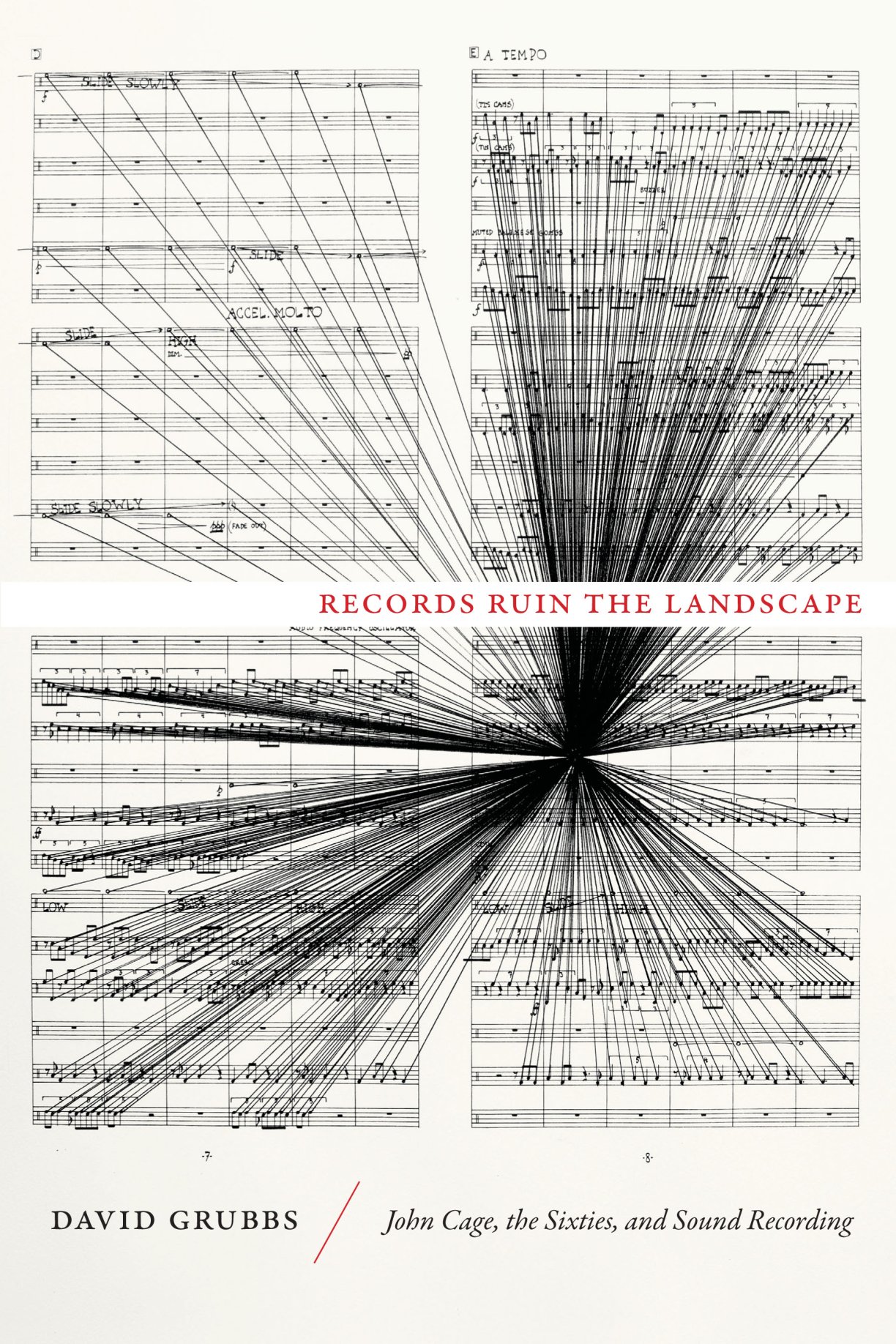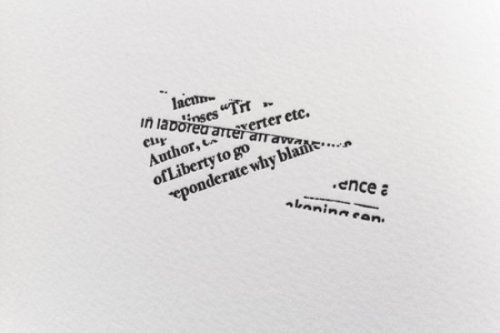Records Ruin the Landscape: John Cage, the Sixties, and Sound Recording (Duke University Press) is David Grubbs’s long-awaited study of the role that sound recordings play in representing experimental music of the 1960s. For this book launch event, Grubbs reads from Records Ruin the Landscape and takes part in a discussion with Branden W. Joseph, Lisa Kahlden, and Marina Rosenfeld. The discussion intermittently takes the form of a jukebox jury, but one in which judgment is offered in the form of historical reflection equally oriented toward both music and jukebox.
John Cage's disdain for records was legendary. He repeatedly spoke of the ways in which recorded music was antithetical to his work. In Records Ruin the Landscape, Grubbs argues that, following Cage, new genres in experimental and avant-garde music in the 1960s were particularly ill-suited to be represented in the form of a recording. These activities include indeterminate music, long-duration minimalism, text scores, happenings, live electronic music, free jazz, and free improvisation. How could these proudly evanescent performance practices have been adequately represented on an LP?
In their day, few of these works circulated in recorded form. By contrast, contemporary listeners can encounter this music not only through a flood of LP and CD releases of archival recordings, but also in even greater volume through Internet file-sharing and online resources. Present-day listeners are coming to know that era's experimental music through the recorded artifacts of composers and musicians who largely disavowed recordings. In Records Ruin the Landscape, Grubbs surveys a musical landscape marked by altered listening practices.
David Grubbs is an associate professor in the Conservatory of Music at Brooklyn College, CUNY, where he also teaches in the MFA programs in Performance and Interactive Media Arts (PIMA) and Creative Writing. Grubbs has released twelve solo albums and is known for his cross-disciplinary collaborations with writers such as Susan Howe and Rick Moody, and with visual artists such as Anthony McCall, Angela Bulloch, and Stephen Prina. He was a member of the groups Gastr del Sol, Bastro, and Squirrel Bait, and has performed with the Red Krayola, Will Oldham, Tony Conrad, Pauline Oliveros, and Loren Connors, among many others.
Branden W. Joseph is the Frank Gallipoli Professor of Modern and Contemporary Art in the department of Art History and Archaeology at Columbia University. He is the author of Beyond the Dream Syndicate: Tony Conrad and the Arts after Cage (2008), The Roh and the Cooked: Tony Conrad and Beverly Grant in Europe (2012), Anthony McCall: The Solid Light Films and Related Works (2005), and Random Order: Robert Rauschenberg and the Neo-Avant-Garde (2003), which appeared in French translation in 2012. Joseph’s writings have also been featured in such periodicals as Artforum, Art Journal, October, Critical Inquiry, and Texte zur Kunst, as well as the catalogues CTRL [SPACE]: Rhetorics of Surveillance from Bentham to Big Brother (2002), Angela Bulloch: Prime Numbers (2006), The Anarchy of Silence: John Cage and Experimental Art (MACBA, 2009), Claes Oldenburg: The Sixties (2012), and Mike Kelley (2013). Joseph was a founding editor of the journal Grey Room and the editor of Kim Gordon, Is It My Body? Selected Texts, released this year on Sternberg Press.
Lisa Kahlden is President/CFO of Anthology of Recorded Music, Inc., the not-for-profit parent company of the New World Records label; its affiliated subscription-based streaming service, DRAM; and Sound American, an online quarterly digest challenging the perception new and experimental music is somehow joyless, or beyond the average listener. Kahlden hails from Kentucky, where as a teenager she abused her public library card by checking out New World Records for months at a time.
Known equally as a composer of large-scale performances and an experimental turntablist working with hand-crafted dub plates, Marina Rosenfeld has been a leading voice in the increasing hybridization between the domains of visual art and music. She has created chamber and choral works; a series of acclaimed “orchestras” for floor-bound electric guitars and other unusual scenarios; and since 2008, a series of works, often mounted in monumental spaces, like the Park Avenue Armory and Western Australia’s Midland Railway Workshops, deploying complexes of unamplified live performers and custom loudspeaker installations. Rosenfeld's work has been widely presented throughout Europe, North America and Australia, including recent solo projects for the Museum of Modern Art in New York; SPOR, Ultima, Wien Modern and Holland Festivals; the Whitney, Liverpool and PERFORMA Biennials; and many others. She joined the faculty of Bard College’s MFA program in 2003 and has co-chaired its department of Music/Sound since 2007.




